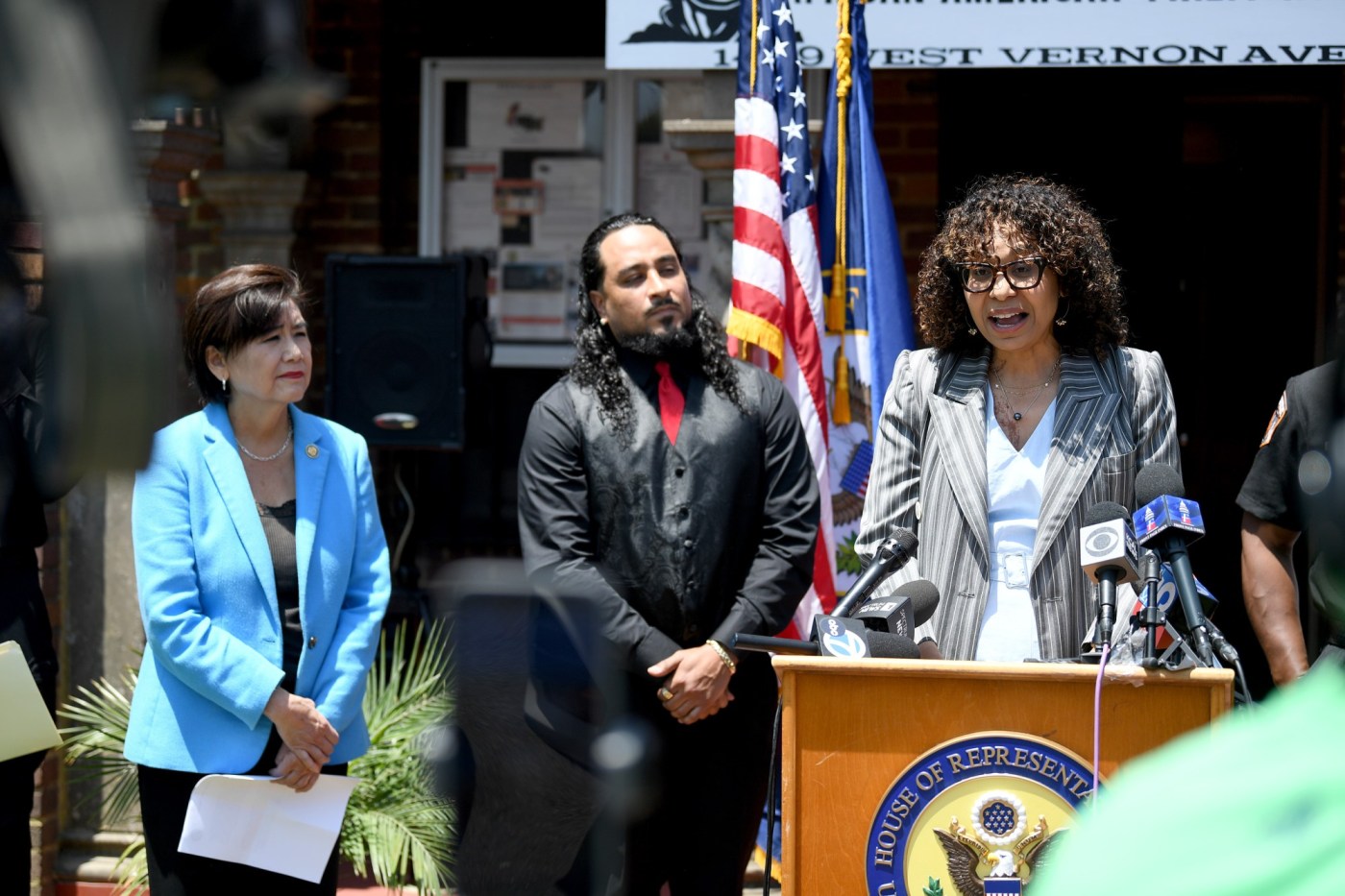
There’s already a bill working its way through the California Legislature to increase pay for incarcerated firefighters in the Golden State.
Now, some members of Congress from the Los Angeles area are hoping to address pay inequities and safety standards for these firefighters at the federal level as well.
On Tuesday, May 27, Reps. Sydney Kamlager-Dove, D-Los Angeles, and Judy Chu, D-Pasadena, announced legislation to increase pay and offer more workplace protections for incarcerated firefighters, create job opportunities after they’re released from prison and establish a pathway for expungement of their criminal records.
Related Articles
Alameda County DA dismisses case against Radius Recycling in massive 2023 fire
Website with new interface provides testing results from Moss Landing battery plant
SJFD, Cal Fire halt brushfire near Guadalupe Landfill
Los Gatos announces first-ever emergency manager
Urban fires can mean long trips for helicopters to get water. One California firefighter had a better idea
Called the Fairness, Inclusion, Rehabilitation, and Expungement for Incarcerated Firefighters (FIRE) Act, the bill is about second chances, said Kamlager-Dove.
“L.A. is a city where your dreams can come true. L.A. is the city about underdogs beating the odds. And L.A. is also a city about redemption. And the FIRE Act is about redemption,” she said during a press conference outside the headquarters of the Stentorians of L.A. County, an association that supports Black firefighter personnel.
Chu, who represents Altadena, one of the hardest-hit communities during the January wildfires that tore through L.A. County, noted that the Eaton fire destroyed some 9,500 structures, displaced about 20,000 residents and killed 18 people.
Still, she said, “It could have been so much worse.”
“Thanks to the incredible bravery of the firefighters, it was stopped before it could burn more communities in my district,” Chu said.
The FIRE Act proposes to expand occupational safety coverage to incarcerated firefighters in state and federal correctional facilities.
Incarcerated individuals aren’t considered employees under federal law, so incarcerated firefighter programs currently don’t have to meet the same equipment and safety standards as other firefighter programs. This bill would ensure that, nationwide, incarcerated firefighter programs abide by standards set by the Occupational Safety and Health Administration.
The bill also would:
• Require annual safety reports from relevant facilities.
• Recognize incarcerated firefighters as employees entitled to wage protections.
• Provide $20 million annually for states to adopt safety and wage protections and to enforce compliance.
• Fund job training, placement and mentoring programs.
• Establish a pathway for incarcerated firefighters to expunge their records upon successful completion of probation and reentry.
Other Southern California lawmakers co-sponsoring the bill are Reps. Ted Lieu, D-Torrance, and Maxine Waters, D-Los Angeles.
According to Kamlager-Dove’s office, under the FIRE Act, incarcerated firefighters nationwide would be paid at least the federal minimum wage of $7.25 per hour, or the minimum wage of the state or local jurisdiction that they live in, if that rate is higher. That rate is $16.50 per hour in California.
During the January wildfires in L.A. County, over 1,000 incarcerated firefighters were called to duty.
In California, inmates who voluntarily sign up for the California Department of Corrections and Rehabilitation’s Conservation (Fire) Camp Program and work as firefighters currently get paid $5.80 to $10.24 per day, and receive an extra $1 per hour when responding to an active emergency. Individuals at the lowest end of the pay scale earn $29.80 a day during an active emergency.
Their low wages made headlines, with social activists, including reality star Kim Kardashian, demanding they be better compensated.
It prompted Assemblymember Isaac Bryan, D-Los Angeles, to introduce a bill, AB 247, to increase incarcerated firefighters’ wages.
He had proposed increasing the wage to $19 an hour when they’re assigned to an active fire incident, but that got amended to $7.25 per hour — the same as the federal minimum wage — before the bill passed out of the Assembly Appropriations Committee last week. It now awaits a vote by the full Assembly.